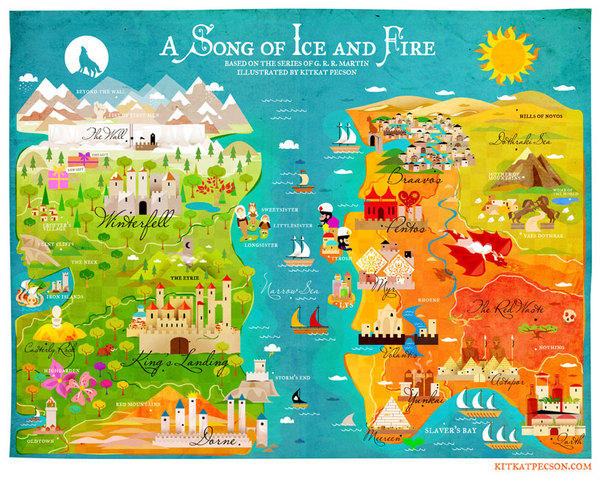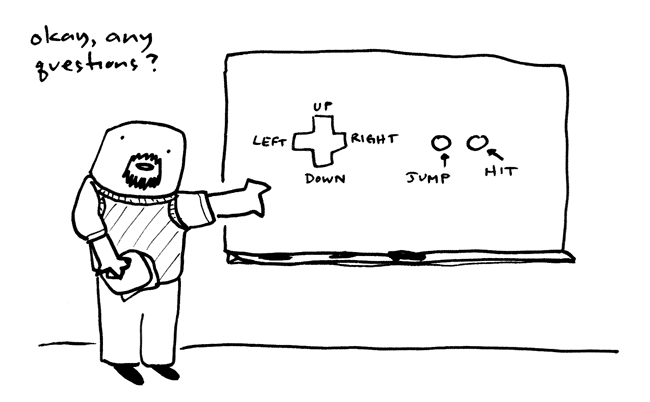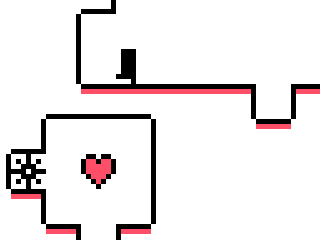So, as I mentioned before, I can't seem to crack into any of the supposed game design software I've seen on the internet and read in reviews and even have seen attributed to games that I like (Anodyne). Yet, my mind persists in imagining what it would be like to design a game. And I think this stuff makes for a great game design idea!
For example, I think it would be great to design a game, where the levels progress with programming milestones. Like, the first screen is just a crappy looking block guy, moving around -- success! Then the next screen maybe you can slash a sword! And then by the third screen, maybe you can cut down a bush! Hooray! Then there's an enemy. And then, by then you might have the hang of it enough to have like, a whole series of screens, with a treasure box at the end, hooray!
I imagine a narrator the whole time, describing the process of creation to the little character on screen. The challenges, and progressions. Creating a weird meta-fiction author dynamic. Did I mention I love meta-fiction? I've noticed this stuff is pretty big these days as well, with games like Thomas was Alone and the Stanley Parable Demo. Also, with the regular use of the term 'meta' to describe things. But being a fancy English major, I've been familiar with the term for some time.
Specifically, I was introduced to meta-fiction with the book 'At Swim Two Birds' by Flann O'Brien (pen name Brian O'Nolan - meta!) . It's a book about a guy who's writing a book. Meta level 1. Then the characters in that book decide they don't like what's going on in their story, Meta Level 2, and they go to to the authors house to talk some sense into him. Or some such thing. It's a lot of fun, and very old, published in 1939.
Further Meta ideas come from the 'fourth wall' concept in theater, whereas the actors aren't supposed to acknowledge the audience, and when they do so, they're breaking the 'fourth wall.' I've always loved to play with that, though.
Of course, my idea of a video game about its own creation is silly for a couple reasons. One is that I still don't actually know what the process is like. I'm just guessing. And whenever I read interviews with game creators, they always describe all sorts of things they weren't expecting. So I expect that would happen to me too. Expecting the unexpected, I'm so ready!
Anyway, I think the process would be to work on different concepts, enemies, items, procedures, etc. And make careful note when something interesting happens. Then, when I've got the hang of the whole programming thing, go back and fake it. There's no need for my authentic practice screens to be in a game, just something resembling them. Throw a kookie narrator with a british accent on the thing, and I'm set!
Man, I love my own ideas! And it's so much easier to write about them than to actually push them through my metaphorical loins, spank breath into them, cut their metaphorical umbilical chord, hold them close and feed them from my metaphorical teat! I'm unemployed, and *still* that sounds like too much trouble! Maybe it's the way I described it... Actually, wait, this reminds me of the conclusion of the play "Slag" that I saw in college. My girlfriend was one of the three principle actresses, and her character gets miraculously pregnant, but her character was insane, and it was actually just a food baby. (Oh man, I am *such* an English Major.)
Anyway, I realize I spoiled the ending for you, which is a high crime, but don't worry - the enjoyment of that play came from the performances. Three fantastic Actresses with really great chemistry. The plot wasn't really very important, and I saw it more than once, I think. It was performances like that that gave me a love of the theater. And has subsequently fueled my curiosity about the connection between theater, film and video games. Specifically around minimalism - I love how fantastic some performances are with minimal set design. I can't help but wonder if a similar elegance can be applied to game design, programming and execution.
 |
| http://www.andysowards.com/blog/2012/70-epic-map-design/ |
When I was young, I wanted to create epic fantasy. Nothing but. Alright, maybe an occasional side-scroller. But, the biggest piece of my creative pie was taken up with 50+ hour Role Playing Games. And the reflexive version: novelizations of already existing RPGs. High Fantasy, Tolkein and Dungeons and Dragons ruled all. And the bigger, longer and more epic, the better. It is still like a security blanket or a favorite stuffed toy. I can go back there just by closing my eyes and relaxing.
However, in these days following the Box Office and Academy Award domination of the Lord of the Rings movie Trilogy, it seems pretty damned clear to me that the High Fantasy World is covered. You can't throw a stone without hitting a two to three hour epic something. I missed riding that wave, and now I'm wonder when it will subside.
These days, I am most interested in minimalism, in peeling back all of the glitz and the glamour and the huge set pieces, to find out what's in the core of genre, theater, creativity. I want to take a chisel to the edifice of the modern High Fantasy Blockbuster and see if there isn't something beautiful underneath it all. I believe that minimalism is more raw, and prompts the viewer to fill in the gaps with their own imagination. More than that, it is much, much more inexpensive to produce. And therefore can be done with a smaller team, which allows for much more creative control and input by the principle few. And that serves my starving little creative ego, I think.
Hmm, caffienne high is faltering. love of my own ideas is waning. autumn is passing into winter. power down. boooooooop.
-D
P.S. follow-up question: does this need to be published? Our blog quality standards aren't like, super-high or anything, yet I have a bunch of ideas that are important to me here, and I could maybe turn them into something real. But if that's the case, what does it matter if I publish now or later?
P.P.S. Mine the brainy gamer for theater-game connection. I think he's really into that.
P.P.P.S Interdisciplinary study called 'Performance Studies' at UCD, Berkeley. Looks pretty darn close to what I'm looking at
P.P.P.P.S Adaptation and American Movie are both examples of movies about the making of movies. Adaptation with much more creative license - and a big favorite of mine!
P.P.P.P.P.S. I think I'll just keep all these post-scripts. Why not? I'm feeling silly. Also, I heard that there was a game that progresses through the history of RPGs. That's sort of what I'm talking about, but not the same thing.



No comments:
Post a Comment